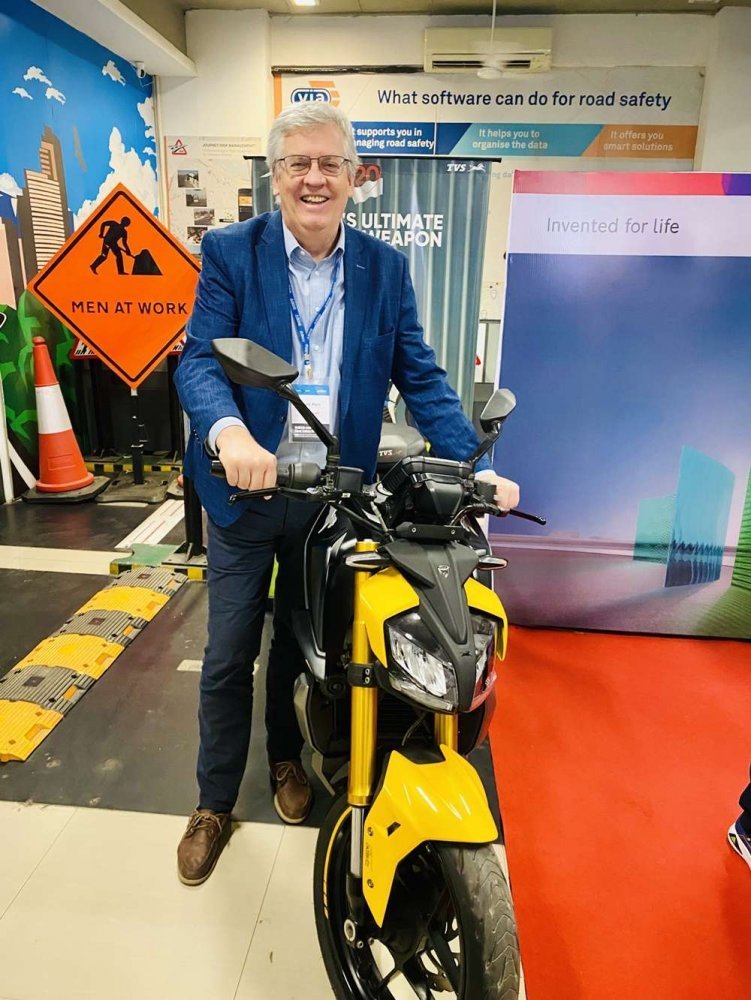Thread Starter
#1
Global New Car Assessment Program has updated it’s fleet safe guide and recommended to corporates and fleet owners to go in for safer vehicle selection using NCAP ‘five star’ ratings and the UN safety standards for passenger cars.


Official Statement:
“Work-related crashes cause a third of global road deaths, making driving one of the biggest risks for employees. To assist fleet managers in making safer vehicle purchasing decisions, Global NCAP has revised and further developed our FleetSafe guide. It reflects the latest thinking and recommendations on vehicle selection. Improved fleet selection and purchasing can contribute greatly to ensuring safer vehicles enter the fleet, safeguarding the health and well-being of employees and contribute to saving lives globally.” Said David Ward, President Emeritus , Global New Car Assessment Program (GNCAP)
“Using Global NCAP’s guidelines and adopting a five star commitment will be the best way for fleet managers to meet their duty of care for employees, reduce the costs of road crashes, and demonstrate real commitment towards Corporate Social Responsibility. How vehicle fleets are driven, maintained, and purchased is an important contributor to improved road safety. “ said Mr Ward.
“Over 1.1 billion two wheelers are sold globally and they also require multiple safety measures to be implemented. Two-wheelers should have ABS, blind spot detections systems and more to make them safer. With Two wheelers accounting for 44% of road fatalities in India, improving their safety is major priority. These priorities include anti-lock brakes, standards for helmets, enforcement & road design.” He added.
“For further safety of Two wheeler riders GNCAP recommends anti-lock brakes (ABS) for all bikes capable of plus 50kmh. India is world leader on ABS standard but it has mandated ABS above 125cc but could go further. “ he said.
“Since ABS has been a successful intervention to reduce the risk of road crashes and fatalities involving two-wheelers and fatalities, this should be a feature in all motorised two-wheelers above 50cc,” said David Ward of Global New Car Assessment Programme at a conference on ‘Vehicle and Fleet Safety’ at the Institute of Road Traffic Education (IRTE). Safe technological systems, including ABS for all two-wheelers, cannot be ignored, he added.
“Using Global NCAP’s guidelines and adopting a five star commitment will be the best way for fleet managers to meet their duty of care for employees, reduce the costs of road crashes, and demonstrate real commitment towards Corporate Social Responsibility. How vehicle fleets are driven, maintained, and purchased is an important contributor to improved road safety. “ said Mr Ward.
“Over 1.1 billion two wheelers are sold globally and they also require multiple safety measures to be implemented. Two-wheelers should have ABS, blind spot detections systems and more to make them safer. With Two wheelers accounting for 44% of road fatalities in India, improving their safety is major priority. These priorities include anti-lock brakes, standards for helmets, enforcement & road design.” He added.
“For further safety of Two wheeler riders GNCAP recommends anti-lock brakes (ABS) for all bikes capable of plus 50kmh. India is world leader on ABS standard but it has mandated ABS above 125cc but could go further. “ he said.
“Since ABS has been a successful intervention to reduce the risk of road crashes and fatalities involving two-wheelers and fatalities, this should be a feature in all motorised two-wheelers above 50cc,” said David Ward of Global New Car Assessment Programme at a conference on ‘Vehicle and Fleet Safety’ at the Institute of Road Traffic Education (IRTE). Safe technological systems, including ABS for all two-wheelers, cannot be ignored, he added.
350Z

